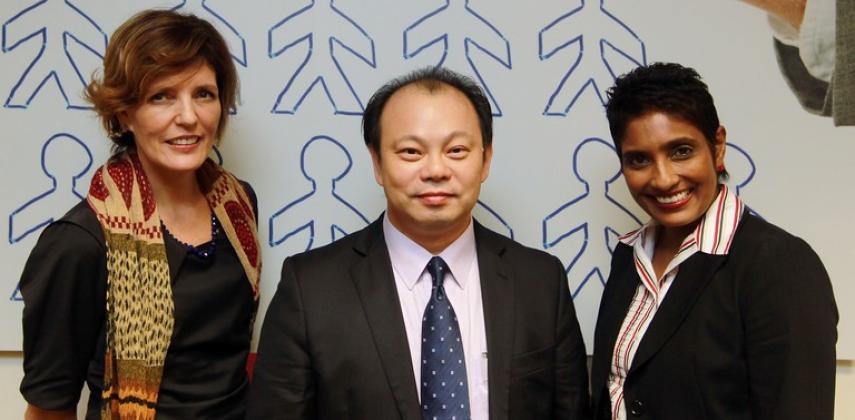"Like it or not, every workplace has its own political environment," says Horan, founder of the Horan Group, a strategic consulting practice focusing on the acceleration of women leaders, innovation and learning. "The key is to identify how decisions are made and how they follow a chain of command."
Horan was speaking at the "Influence Your Way to the Top: Understanding Power, Positive Politics and Networking" seminar presented by Classified Post, supported by Speakers Connect and BlackBerry. Co-presenter Alice Kaushal offered tips and insights on effective networking and interacting with colleagues.
According to Horan, positive workplace politics revolves around ethical ways of being noticed and having ideas accepted without harming relationships. "Positive politics is about building relationships, putting ideas forward and getting things done. This requires an understanding of the internal working within organisations and using principled tactics to achieve career success. The people who `get it' don't look to find things wrong with others, instead they work at collaboration," says Horan, who worked in organisational development at Kraft Foods and Walt Disney (Asia-Pacific).
Pointing out that business education programmes and MBAs rarely touch on positive workplace politics, Horan says skills need to be developed systematically. She stresses that positive workplace politics require credibility and substance coupled with the ability to communicate ideas without seeming to be boastful.
She says taking the view that "my work speaks for itself" never works. Horan says aspirations are achieved through interaction and connecting with people that have access to senior management.
To get started, individuals need to identify what they would like to achieve and orient their actions toward those goals. Horan recommends working on building strong relationships and helping others. In return, colleagues who have established strong rapport make up the support system that helps individuals attain their goals. She suggests drawing up a list of people within a company an individual would like to communicate ideas with. "A good way of gaining attention is through reporting news of interest to the person you want to connect with," Horan says.
She says introverts could opt for social network channels such as LinkedIn, Twitter and Facebook. "These can be useful tools for communicating ideas through blogs, and articles describing successful projects and professional insights," says Horan, who cautions that social network tools should not be overused and successful projects should be credited to teamwork and not the author.
"The idea is to generate recognition for the team or company and at the same time bring to the attention of those that matter, the abilities and efforts of the person involved in a project," Horan says.
Kaushal is a firm believer in developing relationships through face-to-face networking. "Opportunities to network happen all the time, but only if you move away from your desk. It is easy to make use of coffee breaks, lunches, and impromptu chats in the lift lobby. Networking should be approached with the spirit of generosity. Take the time to offer help or socialise with people whose relationships you value and those you would like to get to know better," says Kaushal, managing director of Refine Consulting, which provides training on cross-cultural communications, business etiquette and customer relations.
At receptions and professional gatherings, Kaushal says successful networking requires attentively listening to others, being open, genuine and accessible. To form a connection, Kaushal advises finding out three things about a person unconnected with their work. "Who knows where this can lead?" she says. "We should not form opinions or be restricted by preconceived ideas directed by what we read on a business card. Building your network is an ongoing process."
She says sometimes it is not about the next career move; instead, it can be an expert's insights regarding trends in a particular industry that make others aware of new ways to apply experience or expertise. Before asking allies for favours, Kaushal says it is important you first need to give them genuine support. "Ask yourself what skills, insights, or information can you offer that will have real value to them," she says.


